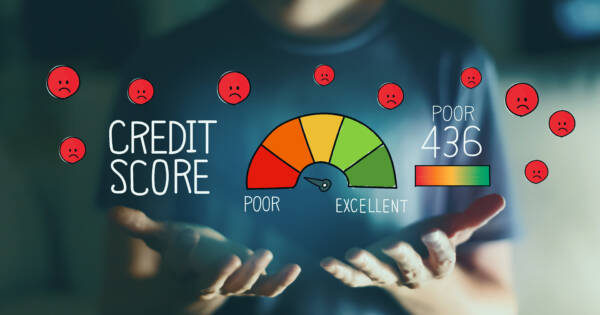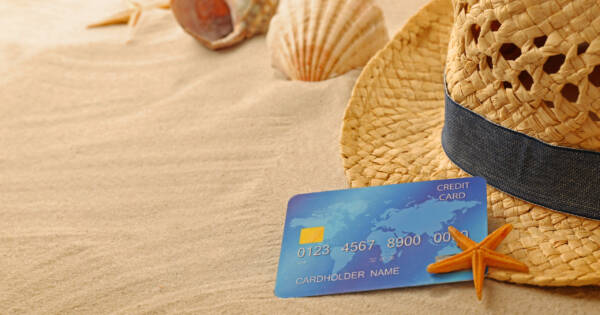For small business owners, it can sometimes be difficult to keep your professional and personal finances separated. After all, your own financial success depends on the business doing well. And sometimes vice versa, as well, if the business requires you to invest more of your own money into it. If you have poor credit personally, it can hinder your business’s ability to get credit too. It’s also possible that your business itself has poor credit. Let’s just be real for a second — credit mishaps happen. Maybe your business has an unexpected expense that forced you to pay bills late or miss debt obligations. It can happen to anyone.
However, you can still get a new business credit card, even with less-than-stellar credit. Much like a personal credit card for those with bad credit, these cards aren’t anything special. They come with relatively low credit limits, average interest rates, and minimal rewards. Some of them are even secured credit cards, meaning you’ll have to put down a cash deposit to open them. However, opening up one of these credit cards will help your business rebuild its credit. Hopefully that’s one of the first steps towards it being a viable, long term success.
How Bad Is Your Credit Really?
Some people think there is only two options for your credit: bad or good. But it’s actually a much broader spectrum. Although different financial institutions use their own scales, they are all roughly the same. Bad credit is any score below 500, while Poor is typically defined as between 500 and 600. You have Fair credit between 600 and about 680. After that, you’re getting into Good, Very Good, and Excellent credit ranges.
The important thing to know, for the purposes of getting a business credit card, is that your credit might not be as bad as you think. Different banks and credit bureaus use slightly different methods to consider your creditworthiness. And that one financial blunder you made a few years ago might not have tanked your score as much as you think. So check out these business credit card options, and see which one might fit your needs.
Capital One Spark Classic for Business
With no annual fee, the Capital One Spark Classic is a solid place to start. Unfortunately, it also comes with a fairly high variable interest rate of 26.99%. So make sure you pay off the entire balance every month, or else the extra charges will cost you plenty. The good news, though, is that it offers 1% cashback on everything — with no minimums or expiration dates, either. You can also get free employee cards with their own spending limits, if you need to.
Use the Spark Classic to build your credit back up, and then look into upgrading to one of the other Spark products. They have better interest rates and more attractive rewards programs.
Wells Fargo Business Secured Card
Now we’re getting into secured cards, which are a good option for those with bad or poor credit. If you’re unfamiliar with secured cards, you’ll have to put some cash down up front in order to get one. This Wells Fargo card has a credit limit anywhere from $500 to $25,000, depending on how much you can front as a deposit. After that, you’ll enjoy 1.5% cash back on every dollar spent, plus bonus points if you spend $1,000 or more during your monthly billing period.
This card comes with no annual fee and a Prime + 11.9% interest rate. Those are nice qualities, but don’t forget that you’re still providing the funds to secure the credit limit. So you should be getting those things anyway. The good news is that secured credit cards aren’t supposed to be forever. Use this card responsibly, get your security deposit back, and upgrade to a better card once your business has a better credit score.
BBVA Compass Business Secured Visa
Here’s another secured card, similar to the last. This one comes with a $40 annual fee, although it’s waived for the first year. The minimum security deposit and credit limit is $500, but you can increase it at any time with increments of $100. The interest rate is either 17.49% or Prime + 12.99%, making it a better rate than some cards, but worse than others.
In terms of rewards, you’ll get one point for every dollar you spend. You can also create your own categories for bonus points (like gas or groceries, for example). One potential downside is that only 90% of your deposit is available for your credit limit. So if you open this secured card with $1,000, your credit limit will actually only be $900. It protects you a bit, sure, but it’s also a touch annoying.
Blue Business Plus American Express
The Blue Business Plus Amex card has one particularly great perk. It comes with a 12-month introductory 0% interest rate. That makes it great for balance transfers, debt consolidation, or simply any small business looking to spend smartly as they grow. After the first year, the interest rate is variable based on your creditworthiness.
This card has no annual fee (another nice bonus) and even some basics rewards. You get 2X points for the first $50,000 you spend every year, and 1X on every dollar after that. If you’re worried about carrying over credit card balances as your start your business, this 0% intro card might be your best choice. On the other hand, if your business relies on a lot of travel, there might be other cards with travel rewards that better suit your needs.
Chase Ink Preferred
The Chase Ink Preferred is a great card for your business. However, it might require a bit better credit score than others on our list. If you do qualify, however, there are some decent perks to be had. For starters, you can earn 100,000 bonus points if you spent $15,000 in the first there months. Those points could be worth as much as $1,250, depending on how your redeem them. You can also get additional employee cards at no extra cost.
The Chase Ink Preferred card does come with a $95 annual fee. The interest rate is typically between 15.99% and 20.99% — that’s not awful but also not anything special. The good news is that the generous rewards program should easily pay you back the annual fee, as long as you’re using your card responsibly and avoiding heavy monthly interest charges.
Try a Line of Credit?
There are some alternatives to credit cards. Many businesses, both big and small, open lines of credit. Although typically these are reserved for companies who already have solid credit, there are also options for credit scores on the lower end of the scale. One solid choice is Kabbage.
They offer lines of credit up to $250,000. The application process is quick and available online. There are some qualifiers though. For one, you’ll need to have been operating your business for at least 12 months. Your interest rate will be subject to your credit score and outside factors like the Prime rate. The good news is that your Kabbage Card will give you direct access to the funds, operating much like a debit card. However, since Kabbage is not technically a credit card, there are no rewards programs to speak of.
These Cards Aren’t Forever
The important thing to remember about these cards is that you don’t have to keep them forever. Many of them are specifically designed to help you build or improve your credit. After a couple years of using one of these “for those with bad credit” types of credit card, you can probably upgrade to a better one. Look for cards with lower interest rates, more perks, or more valuable reward options.
 Shutterstock
Shutterstock







